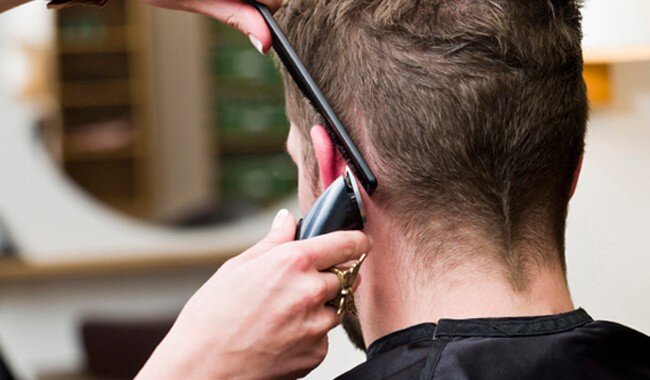Article appeared in Modern Barber Magazine – January 17, 2020
There’s a massive skills shortage in barbering and a rising concern from professional barbers about the quality of skills found in job applicants. The rise and rise of intensive courses that aren’t underpinned by a recognised qualification has not helped. Quality takes time. MB spoke with Edward Hemmings, men’s hair specialist, educator and owner of Alan d Hair – a central London school that has been offering barbering education for three decades. Edward says “Apprenticeships are the life blood of our industry. It’s how barbers build a legacy and share their amazing knowledge, helping our younger learners feel part of our heritage. It gives your shop a clear succession plan for growth and it also builds loyalty. Loyalty from customers to their barber, loyalty from barbers to the employer and loyalty within the team. Demonstrating that you are investing your time and energy in your shops future also helps showcase your professionalism. I think there is a huge perception that apprenticeships are very difficult and expensive for the employer but actually there is a clear, structured path and masses of support both in terms of training and financially,” says Edward.
Here’s the basics on fact checking apprenticeships.
- Your apprentice needs to be employed – as in on the PAYROLL.
- You can employ an apprentice from school leaving age upwards.
- You need to pay your apprentice the relevant wage for their age. Right now that’s £3.90 per hour for the first year (regardless of age) then £4.35 per hour under 18, £6.15 per hour for 18-20 year olds and £7.70 per hour over 21.
- Your apprentice should be employed for a minimum of 30 hours a week and a maximum of 40 hours a week. At least 20% of that time must be off the job training.
- You need to find your local training provider and sign up with them. Training providers like Alan d will monitor training, sign off on NVQ modules and prepare your learner for their ‘End Point Assessment’. Make sure your training provider uses highly qualified and experienced assessors. It is your training provider that has the relationship with the awarding body and who will provide the qualification.
- A barbering apprenticeship will last at least 13 months and is more likely to take 15 months.
Edward recommends taking your time in finding a learning provider. Don’t JUST go on online reviews try and speak to graduating students or past learners. Edward regularly posts about topics concerning education and the challenges that employers (and learners) may face.

